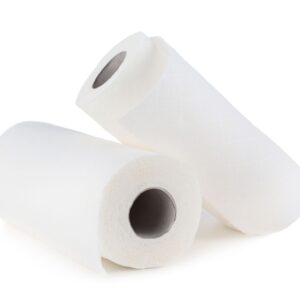Many of my previous posts have focused on the big things like paying yourself first, automation, investing regularly, and avoiding lifestyle creep. These principles are critical components to success in personal finance. There are also little things we can all do, money hacks being one of the first to come to mind.
What Is a Money Hack?
A money hack is something small and easy to implement. It’s almost a mindless, natural activity. Money hacks become especially powerful when we make them habits and implement them regularly.
It’s the idea that a series of little things add up to big things. Money hacks aren’t going to make anyone rich but they will provide you with savings, put more money in your pocket, and give you the opportunity to invest more.
Types of Money Hacks
There are many different categories of money hacks. To name a few:
- Food and grocery
- Transportation
- Bills and subscriptions
- Household
There are a plethora of money hacks in these four categories (and other categories.). Some money hacks are incredibly simple and require almost no time, and others require a little more thought and effort. The very design of a money hack though is that it is simple and easy to take action on.
Examples of Money Hacks
This will be the most detailed section of the post–the part in which we write about specific money hacks. Pick a couple to start with and then keep adding to your list. Create some of your own too, the sky is the limit in how many you can come up with.
Number One: Buying in Bulk
For non-perishable items that you regularly use, buy in bulk. Buying in bulk can often save 50 percent or more off regular price. Items like these are very easy to buy in bulk and can save you a good amount of money.
- Toiletries
- Paper towels
- Cereal
- Personal hygiene products
- Cleaning supplies
Number Two: Buy Regularly Used Items on Sale
If there are certain items you use regularly that go on sale, buy more than you normally would. For example, if there is a certain face product you use that is five dollars off, purchase a few of them.
It’s a product you use regularly, and you know it won’t go to waste. It’s an incredibly simple money hack that is as easy as grabbing three of four at the store instead of one when they are on sale.
Note: where we get ourselves into trouble is when we buy items on sale just because they are on sale. Make sure you already use them frequently and they won’t go to waste. Buying a personal hygiene product you rarely or never use just because it’s on sale doesn’t make a lot of sense.
Related: How I Saved $50 at the Store in Less Than 45 Seconds
Number Three: Purchase Produce Seasonally
Purchasing produce seasonally provides two distinct advantages:
- It’s almost always less expensive
- The produce usually is higher quality in-season
As a simple example, strawberries normally are less expensive and taste better in-season (summer). If you want to go more in depth, I dedicate several pages to this very topic in my book Cash Uncomplicated.
Number Four: Frequent Shopper Rewards
Another incredibly easy money hack–many stores offer rewards simply for shopping at their store. Offers like five percent off the purchase, gas rewards, or cash back are not uncommon. It’s a win-win for both the store and the customer.
The store gets the business, and you the customer save a little bit of money by going to that store. Just make sure you’re not buying extra just to get the rewards. Every purchase has to make sense independent of the reward.
Number Five: Make a List
This money hack takes very little time but produces good returns. The simple act of making a list and sticking to that list really helps keep shoppers on track and avoids impulse buys. Make a handwritten list or use your phone or anything else to track.
Stores are set up for impulse buys. The ends of aisles and the checkout register are filled with temptation. If you make a list and stick to it, you will mostly avoid these tempting and impulsive buys. Not to mention you’ll save the irritation of having to go back to the store (or place an order) for an item or two you forgot.
Number Six: Only Buy What You Use
This money hack sounds fairly obvious, but we all have a way of falling into the trap of purchasing things we don’t use. An item might be on sale or look good at the store. So we buy it thinking we’ll use it.
Then we don’t end up using it and it goes to waste. Both a waste of money and whatever the purchased item was.
Number Seven: Purchase Discount Gift Card
Now and then stores will offer special promotions like discounted gift cards. One store I shop at has offered $100 gift cards for $90. A simple money hack is to purchase one or more of these cards at a discount.
Depending on how often you go to the store offering the promotion, you can buy one or two gift cards, or several. A deal like $100 for $90 is one I’ll take all day. Buy up the gift cards and use them to save for the next few weeks or months.
Number Eight: Get Gas From an Inexpensive Local Station
This money hack will only take a few minutes of research and from then on all you need to do is execute the plan. Find a local gas station with quality gas at a good price. Make an effort to get gas exclusively at that station when you are in town.
This obviously won’t work when you’re traveling, but it will work most of the time when you are home. Here’s some simple math. If the gas station you pick is 20 cents lower per gallon and you fill up 10 gallons every week on average, that’s two dollars. Not life-changing money but I’d rather have the two dollars than give it to the gas station.
Two dollars over 52 weeks equals $104. Again, not life changing money, but I’d certainly rather have that $104 than give it to the gas station. If your spouse or significant other does the same thing, double the savings.
Number Nine: Keep Car Longer
Money hack number nine requires almost no effort. In fact, it’s actually easier to do than not do. Keep your car longer.
A frequently written about topic is cars. New cars cost a lot of money, especially in the depreciation of the vehicle. I spent an entire chapter in my book specifically about car costs, especially on depreciation of the vehicle and associated opportunity costs. Keeping your car longer saves a lot of money and you don’t have to do any extra daily work to capture the savings.
Number 10: Drive Less
The less you drive, the less you’ll spend on fuel and wear and tear costs. When I write this tip to drive less, I don’t mean to deprive yourself by not going to the places you want to go. This money hack is more about being purposeful and intentional about the trips you do take.
For example, if you live half a mile from your favorite lunch spot, can you walk instead and enjoy the day outdoors? Can you bike with your family to the kids soccer game instead of driving the mile and a half? Nothing earth shattering here, just simple money hacks that will save a little bit of money.
Number 11: Walk and Take Public Transportation
Similar to the last money hack, this tip also involves driving less. There are many weekly opportunities where it saves time and money to walk or take public transportation. Some examples:
- Taking public transportation to a local stadium event can save time and money by avoiding long entry lines and parking fees
- Walking to a local event can save time and money
- Walking or taking public transportation to a busy downtown restaurant avoids the hassle and cost of parking
Number 12: Gas Rewards
Much like money hack number four, many stores offer gas rewards. For example, some stores offer deals like 10 cents off per gallon for every 50 dollars spent. Or something similar.
If you’re already shopping at that store anyway and using a qualifying gas station, why not take advantage of the opportunity? If a family of four has an average grocery bill of $400 per month, that’s 80 cents off per gallon for a trip to the gas station. This isn’t going to make anyone rich but might as well take advantage of the savings since they don’t require any extra effort or work on your part.
Number 13: Cancel Unused Subscriptions
Money hack number 13 will take a little bit of effort upfront, but once the work is done, it’s done. Go through all of your subscriptions and cancel anything you no longer use or value.
Many people find they have multiple unused subscriptions. Cancel them and you don’t have to worry about it again. Depending on the amount of subscriptions one person has, the monthly savings can be significant.
Number 14: Negotiate Bills
Businesses want your business. They also don’t want to lose customers. This creates opportunity to negotiate bills.
Especially bills like internet, cable, and streaming services. Try to find a promotional rate being offered and then see if you can get that same rate. Or see if there’s a loyalty program available. There are usually at least a few options and it doesn’t take much time to find them.
Number 15: Move Companies
Piggybacking off the last money hack, if you’re not satisfied with the pricing of one of your current service providers, switch companies. For example, if there’s a streaming service you’ve been using the last year or two and they aren’t willing to give you a better rate, find a company that will.
There are a lot of companies out there, and a lot of competition for your business. If it’s not too time consuming, shop around and don’t feel obligated to stay with the same company year after year.
Number 16: Travel Hack
At its most basic, travel hacking is relatively simple. Get a credit card that offers rewards and use that card as you normally would. You naturally will build up the rewards.
Rewards can come in the form of airline miles, cash back, hotel points, and much more. Travel during off peak times to take even better advantage.
This post is meant to give you simple money hacks–but if you really want to get involved in travel hacking, there are those who have created elaborate tracking systems to maximize rewards.
That includes spreadsheets, opening and closing cards, and scouring the internet for optimal rewards. If you want to keep it basic though, just stick to one card and cash in the rewards as you use the card.
For more on travel hacking, follow the link to these sites:
Number 17: Make Coffee at Home
Making your own coffee at home is so talked about in the personal finance community that I decided to research and write an entire post about it. What I learned is that making your own coffee at home versus buying at a coffee shop can have significant savings.
It’s also an easy money hack that doesn’t require much time. Set up the coffee pot at night and your coffee can be made by the time you’ve brushed your teeth. Drink it at home in a cup or put in a thermos to bring with you on the go.
Number 18: Make Lunch at Home
After I wrote my post on making your own coffee at home, a reader posted in the comments asking about potential savings from making lunch at home. I thought it was a great topic so I wrote this post about it.
Much like with making your own coffee at home, I researched the costs and learned the savings can be significant—without putting forth a lot of effort. Pack the majority of your lunch at night and finish the rest in the morning. Or just throw dinner leftovers in your lunch bag, pack a few snacks, and you’re done.
Number 19: Turn off Lights at Home
This next money hack is likely one your parents told you when you were a kid as you left a room:
“Turn off the lights!”
When you leave a room and have no plans to return to the room in the next few minutes, turn off the lights. Turning off the lights when you leave a room is one of the simplest money hacks any one can do. It’s just a matter of making it a habit. After a few days it will probably become second nature to most people.
Number 20: Use Less Water
There are many ways to save by using less water. Some areas require a little more thought and effort and other ways are just a matter of habit.
- Set sprinkler systems to use less water in the rainy season
- Turn off the sprinklers when it’s raining or rain is in the forecast
- Turn off the water when you’re brushing your teeth or washing your hands
- Take shorter showers
Most water-saving strategies are easy and take very little time. Sure, you’ll have to remember to turn off the water when rain is in the forecast, but it’s a matter of turning a dial. And things like turning off the water when you’re brushing your teeth or taking shorter showers are more habit related.
Number 21: Keep HVAC Units in Good Shape
I actually need to do better with this money hack myself so this is a good reminder for me. Keep your heating, ventilation, and air conditioning (HVAC) units in good order to increase energy efficiency.
According to a blog posted by St. Louis based HVAC company Crystal Heating and Cooling there are several easy things that can be done to increase energy efficiency.
- Monthly filter checks
- Coil cleaning
- Clean away debris
- And many more
Unless you’re an expert, the only things you need to do for this money hack are monthly filter checks and scheduling your unit to be inspected and serviced. The filter checks probably take less than 30 seconds and scheduling an appointment probably takes under 10 minutes.
Number 22: Optimize Heating and Cooling
Like the last money hack, this one is also related to heating and cooling–optimize heating and cooling. There are many ways to optimize, but I’m going to list a few simple ways to get started.
- Use the unit less when you’re not home
- Turn it off when on vacation
- Keep windows and doors shut
All easy, and all taking very little time, thought, and effort. For more advanced tips, check out this blog post by Bankrate.
Number 23: Buy Quality that Lasts Longer
You might pay more upfront for this money hack, but it will save you money in the long run. Buy quality items that last longer. It’s tempting to buy cheap products for the quick savings. However, those inexpensive products usually end up lasting a much shorter time than the quality items.
For example, a high-quality versus a low-quality electronic device. The high-quality device might cost more upfront but there’s a good chance it’s going to outlast the lower-quality item by years. Which ultimately end up savings and a better user experience.
Number 24: Education
The last, but not least money hack: education. Find areas of your life you want to save money in and learn more about them. This could be as simple as reading a few blog posts on the topic, listening to podcasts, or diving deep into a good book on the subject.
Part of the growth mindset, is always striving to be better. Continual education is a great way to do that, even on simple topics like finding small ways to save money.
Conclusion
Money hacks are designed to be easy, simple, and not very time-consuming. They are small little financial wins that add up. Start with a couple on this list and try them out. Then add some more.
If you find that your money hacks are taking up a great deal of time and energy, it may no longer be a money hack. By design, money hacks should be easy and simple to execute. The idea is to save you money with very little effort or lifestyle change.
Like anything in life, your money hacks should be periodically reviewed to make sure they are still saving you money without much effort. If they’re no longer saving you money, or becoming too time consuming–it’s time to pivot. Fortunately, there are plenty of money hacks available, and if one doesn’t work, move on to the next one.
Have you tried any of these money hacks? Have they saved you money?













